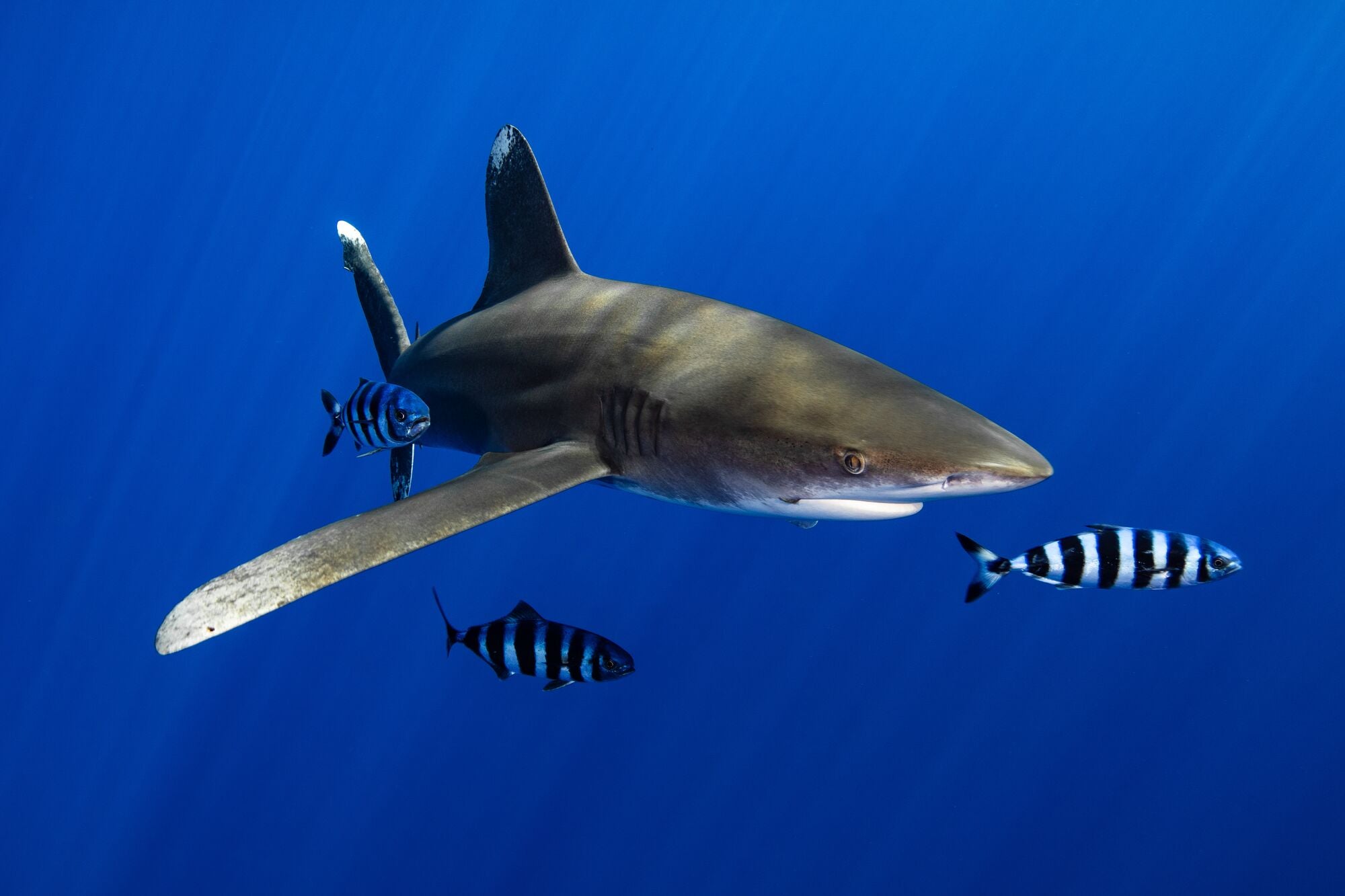U.S. Senate committee to vote Wednesday on bill to try to stop sharks from eating fish
Lawmakers claim sharks are “stealing” anglers’ catch
Contacts
Geoffrey Nolan, gnolan@earthjustice.org
The U.S. Senate Committee on Commerce, Science, and Transportation is scheduled to vote Wednesday on legislation to that aims to stop wild sharks from biting fish on fishing lines.
The so-called SHARKED Act (S. 2314) would create a task force to study shark behavior and make recommendations. Unfortunately, the bill falls short by not explicitly forbidding the task force from proposing shark culls or population reductions as a solution, leaving the door open to killing sharks.
The task force also fails to include representation from Indigenous, tribal and native people, even though sharks are considered sacred to some.
A full committee Executive Session starts at 10:00 a.m. EST. Wednesday, July 30 to consider various legislative proposals. The bill, which passed the House of Representatives in January, is expected to pass through the committee.
While it can be frustrating to have a shark bite your catch while fishing, shark populations are in trouble. Globally, sharks have declined by 71% since 1970, primarily due to overfishing.
“While certain shark populations are beginning to recover, it’s crucial to remember the principle of shifting baselines,” said Jasmin Graham, President and CEO of Minorities in Shark Sciences. “Even though there may be more sharks than in recent history, we’re still far below historic levels.”
“Our fisheries and wildlife laws are designed to recover animals like sharks, which ultimately means more sharks in the water,” said Kristin Butler, Earthjustice Legislative Representative. “People keep forgetting that is the goal. Our solutions should be about how we can coexist with these incredible beings, not condemning them for eating fish in their own habitat — something they’ve been doing for 450 million years.”
Native Hawaiians have long led the way when it comes to coexisting with sharks, with some having special relationships with shark (manō) as a family ‘aumakua — a deified ancestor that protects and warns against danger. Native Hawaiian cultural practitioners may honor their ‘aumakua by acting as shark guardians (kahu manō) and defending these sacred animals, who die needlessly due to inhumane fishing practices.
“There’s a lot we can learn by being on the water with sharks,” said Mike Nakachi, a native Hawaiian cultural practitioner, diver, and educator. “They might not speak to us, but they teach us a lot about respect and how we can both thrive in nature. These lessons are passed down through generations. This is why we need indigenous voices leading shark conservation.”
Sharks need protection more than ever, as industrial fleets overfish sharks and their prey fish. Human-caused climate change and pollution devastate marine life nurseries, including coral reefs and seagrasses. Sharks are a critical keystone species in marine ecosystems.
“Depredation is a complex issue, one that reflects the health of our ocean ecosystems as a whole,” said Graham. “As fish populations decline, both sharks and fishers are competing for the same limited resources. Sharks are becoming habituated to areas with fishing boats, chum, and bait, while increasingly effective fishing gear is putting pressure on the system and increasing the possibility of interactions. As we address this issue, we must tread carefully. We must ensure that our efforts to address shark depredation don’t undo the progress we’ve made or ignore the deeper, underlying causes of these challenges.”

Additional Resources
About Earthjustice
Earthjustice is the premier nonprofit environmental law organization. We wield the power of law and the strength of partnership to protect people's health, to preserve magnificent places and wildlife, to advance clean energy, and to combat climate change. We are here because the earth needs a good lawyer.